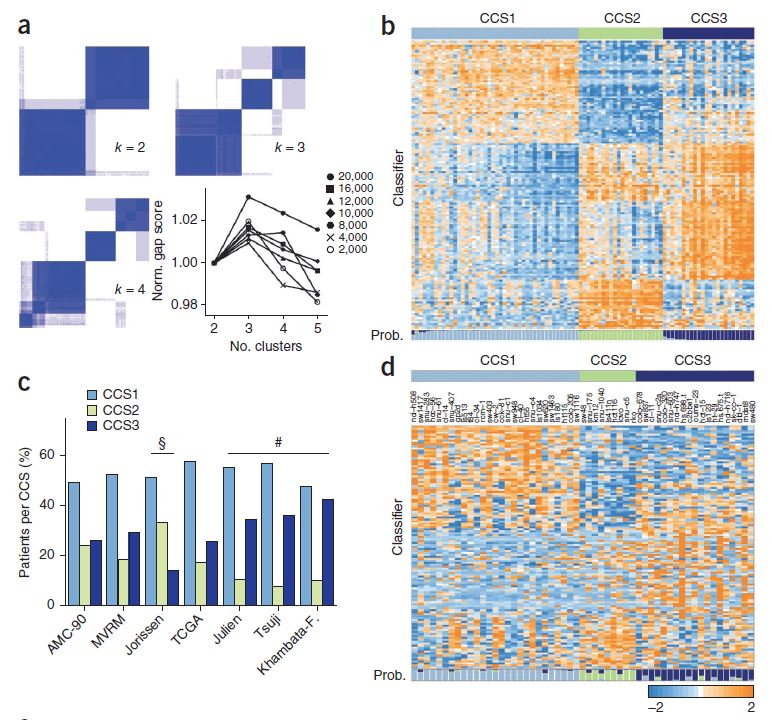May 1931, 19058

Authors
De Sousa E Mello, F†, Wang X†, Jansen M, Fessler E, Trinh A, et al
Nature Medicine 2013, doi:10.1038/nm.3174.
Abstract
Colon cancer is a clinically diverse disease. This heterogeneity makes it difficult to determine which patients will benefit most from adjuvant therapy and impedes the development of new targeted agents. More insight into the biological diversity of colon cancers, especially in relation to clinical features, is therefore needed. We demonstrate, using an unsupervised classification strategy involving over 1,100 individuals with colon cancer, that three main molecularly distinct subtypes can be recognized.
Two subtypes have been previously identified and are well characterized (chromosomal-instable and microsatellite-instable cancers). The third subtype is largely microsatellite stable and contains relatively more CpG island methylator phenotype-positive carcinomas but cannot be identified on the basis of characteristic mutations. We provide evidence that this subtype relates to sessile-serrated adenomas, which show highly similar gene expression profiles, including upregulation of genes involved in matrix remodeling and epithelial-mesenchymal transition. The identification of this subtype is crucial, as it has a very unfavorable prognosis and, moreover, is refractory to epidermal growth factor receptor-targeted therapy.

